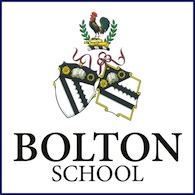Selection may not be a magic bullet, but it is certainly a pretty effective weapon in the fight against academic mediocrity and the lack of aspiration that has stalled social mobility for so many.
Michael Gove has been a courageous politician in many ways but when he said today that æacademic selection is not a magic bulletÆ he signalled that in the debate about academic selection he intends not to act. In other policy areas he always says æthe children canÆt waitÆ and progresses with haste. They canÆt wait for schools well focused on their needs either û the comprehensive education process has run its course and selection by aptitude, with schools for all, is the way forward. Lord Baker has shown the way forward by creating strong vocational and technical schools to complement the academic schools.
The national debate about selection is surely one of the most irrational discussions that permeate our national life. There are some simple truths. Some parents think academic selection is a good idea û in fact so good an idea that they chose to buy independent education. Then there are the parents who send their children to the Grammar Schools in those areas of the country where they exist. Those geographical anomalies themselves point towards there being no rational basis whatsoever for opposition to academic selection. If it were that injurious to national health, why are these Grammars, in state control, allowed to exist and now evenn to expand? And why is academic selection suddenly fine at 18 when Universities select?
The national hang up with academic selection does not extend to any other area of life. We are happy to select the best athletes for the Olympics, the best footballers for the European cup and the television has so very many brutally selective reality shows seeking the very best in British talent (apparently). We are not squeamish about that, but when it comes to selecting the academically able suddenly there is a problem. Perhaps it is the issue about selection at an early age (or perhaps not being selected) changing life chances, the inability to get this right and the inequity of that process. That would make sense if football academies were nationally discouraged. In those very young people are selected, trained, rejected and dreams shattered on a treadmill where only the very best glimpse success. Academic selection is positively benign alongside that system which is now working alongside state funded academy schools, where it is argued academic selection, of course, would blight young lives if it was applied.
The arguments never have and never will make sense. Academic selection works. In Bolton, as in many towns and cities, Bolton School has been an academically selective school for hundreds of years. The impact we can have on social mobility is limited only by finance û currently bursary funds allow 1 in 6 pupils to attend irrespective of their wealth. Our Alumni are a living testimony to social mobility. More could benefit if selection and real parental choice were made acceptable, giving parents their own money back in the form of vouchers to spend at a school of their choice.
That would work if then there was also a clear focus on all types of school. Can you imagine the wonderful education that could be available for those who have great aptitudes that are not academic if only the vast funds currently spent on trying to make a comprehensive education system work for all (an endeavour which has not succeeded for more than 40 years) were to be spent on creating excellent vocational, technical and academic schools. ItÆs not a new idea, but then many of the best ones are not!
If you can select the best athletes, you can select the best academics.
– May 25, 2012Posted in: Education policy

Leave a Reply